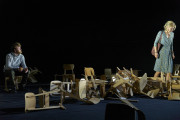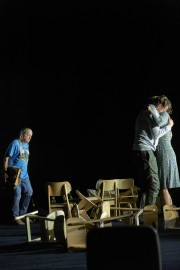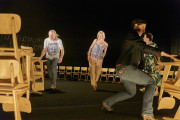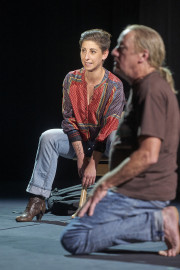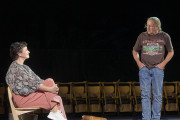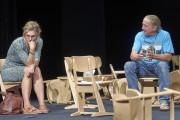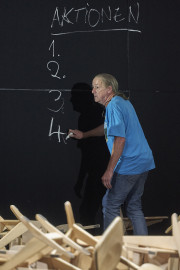Die Nebenwirkungen (EUREKA DAY)
The so-called „Tocqueville paradox“ was named after Alexis de Tocqueville, who described the phenomenon in his 1835 book „Democracy in America“ as when people’s hatred of and resistance to privilege and injustice increases proportionally as the injustices themselves decrease. He goes on to explain that when all conditions are unfair, we hardly notice individual inequalities; but if we find ourselves in a state of widespread equality, any tiny aberrance is unbearable. In Jonathan Spector’s play EUREKA DAY, the parents’ council at a progressive private school is deeply committed to making every single tiny inequality visible in order to erase it. The council members want everyone at this proudly inclusive school to feel welcome, heard and seen. But when a mumps outbreak hits the school and the council is faced with a decision from the education authority that only vaccinated children are to be allowed in the classroom, this upsets the smooth-running, consensus-based democracy at the school.
Jonathan Spector’s tragicomedy, written in pre-pandemic 2018, takes all the discordant opinions of the past few years to the extreme and makes the underlying questions visible: What does democracy mean to us? How do we want to make decisions? How should people be able to participate and be involved? Do the interests of the community end where individual freedom begins? Or is it the other way around?
-
DonMarkus Hering,
-
SuzanneRegina Fritsch,
-
CarinaZeynep Buyraç,
-
MayLilith Häßle,
-
EliMaximilian Pulst,
-
WinterJulia Augscheller,Subia Malik,Valentina Mojsilovic,
| Beschreibung | Information |
|---|



